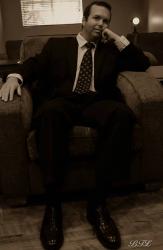Robinson finally chose life; today, he works as a mental health advocate.
Drew Robinson loved baseball as a kid. He came from a baseball family, the youngest of three children. Robinson found his purpose on the baseball field but also struggled with mental illness. Baseball is demanding, and Robinson, a fierce competitor, thought he was letting everyone down.
Still, Robinson persevered, excelling in high school baseball and being drafted into the Majors by the Texas Rangers. He was far from an instant success, relegated to the minors in 2011, where he hit .163 in 45 games for the short-season Spokane Indians. He played for several other MiLB teams, including Round Rock, for parts of three seasons (2014-2016), where I saw him play. I remember him as a good player, hitting .304, .304, and .257 in consecutive years.
Robinson signed a deal with the San Francisco Giants in January 2020 and put his heart and soul into making it into the Major and living his dream. But the pandemic hit, and baseball was put on hold.
After being engaged to be married before the lockdown, Robinson ended that relationship and spent much of his time alone in his Las Vegas home. Depressed to begin with, his depression worsened. Finally, he purchased a handgun and decided not to continue living. Robinson sat on his couch, leaned to the right, picked up the gun, and shot himself in the right eye.
Robinson didn’t die, though, and he couldn’t figure out why. So finally, with blood dripping down his face and fingers, he transitioned to his bedroom, thinking he’d die there. But Robinson awakened the next day wondering how and why he survived, seeing pools of blood everywhere around his house.
Determined to end his life a second time, Robinson sat on the couch, the gun in his left hand and his cell phone in his right hand. He had a choice to make–live or die. This time, Robinson chose life, dialing 9-1-1 and asking for assistance. Robinson had survived 20 hours after he shot himself.
Robinson realized that the most important storyline in his life wasn’t playing baseball but dealing with self-doubt, feelings of worthlessness, depression, and suicidal thoughts. So today, he is a mental health advocate, working in that capacity for the San Francisco Giants and (of course) helping baseball players.














